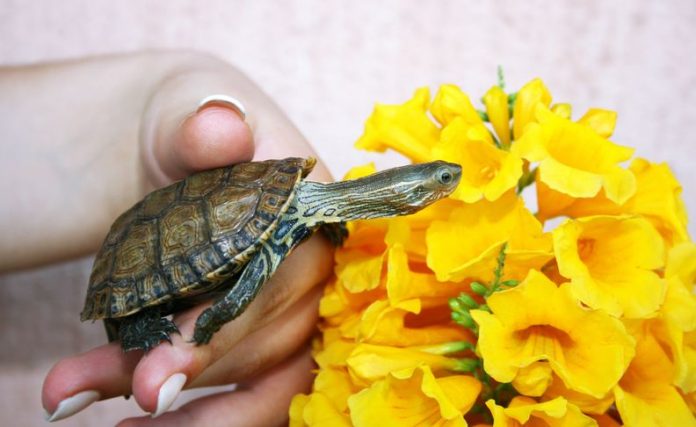Owning a turtle can be more work than you’d think. While they will not be begging for a walk in the middle of a snowstorm or scratching your furniture, turtles require specialized care for optimum health and enjoyment.
What Do I Need To Know About Their Care?
Owning a turtle or tortoise should not be taken lightly. The cost of setting up a proper habitation and providing special food and health care can be quite high.
The fact that they can live for decades further increases the commitment required.
Some turtles and tortoises will require outside habitations. They will need secure fencing that both protects them from predators and prevents them from escaping.
Indoor habitats will require a special set up with heat and water and be of considerable size. They will also need thorough cleaning from time to time.
Your turtle will require a diet of fresh food and supplements to keep in optimum health. Owners should also learn to watch for injuries that need attention or other signs of ill health.
Learn To Hibernate Your Turtle
Many species of turtles will need to go into hibernation and the owner should learn proper technique for dealing with their hibernating turtle.
Some turtles and tortoises that live outdoors will naturally go into hibernation by themselves. You will want to ensure that they have selected a safe area to remain in for the duration.
Protect them from areas that are subject to flooding and from local animals like dogs.
Indoor turtles will need artificial intervention to go into hibernation. You must never hibernate a sick turtle – keep it warm and active until it is healthy or it may not survive the hibernation period.
While owning a turtle is both interesting and educational, understanding the special requirements of having a turtle as a pet is necessary when contemplating ownership.
Enjoy the learning experience and share your enthusiasm with friends and family.
Plan To Care For Your Turtle For A Long Time
There are strict laws regarding the selling and trading of turtles. Since it can be difficult to place your turtle in a new home, should you find yourself unable to care for it, you must be aware that it is illegal to release captive turtles into the wild.
Doing so can spread disease and affect other native turtle species. It will also certainly cost the turtle its life if it grew up in captivity and does not have the ability to care for itself on its own or becomes a victim to natural predators.
So, make efforts to understand the care requirements before acquiring a turtle as a pet and plan to enjoy him or her for a long time.

